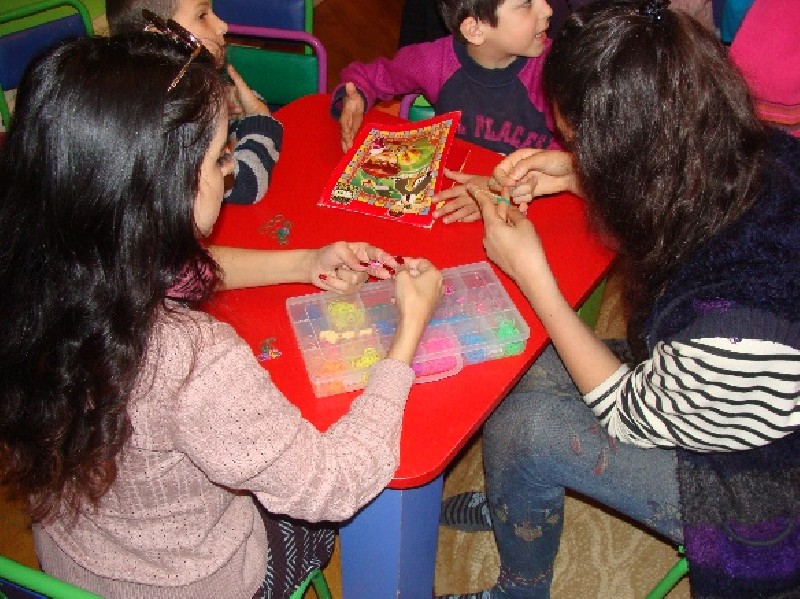
USAID-supported shelters in Azerbaijan play a crucial role in meeting the immediate needs of vulnerable individuals and victims of trafficking to help them rebuild their lives. Photo credits: IOM
Gulnara"s* problems began when her husband abandoned her, forcing her to care for her 12-year-old daughter alone in Azerbaijan. As a single mother with no more than a high school diploma, she was only able to find occasional work as a house cleaner.
At first, Gulnara made enough money to support herself and her daughter, but then her father was diagnosed with a serious illness. The treatment cost more than her monthly income.
While searching for better paying work, Gulnara was offered a promising opportunity as a domestic helper in Turkey with a salary high enough to support her daughter and pay for her father"s treatments. Convinced that the job offer was valid, she left her daughter with her sister and set off for Turkey.
When Gulnara arrived, she found a reality very different than what she expected. Instead of taking her to the job she had been promised, her contact in Turkey took her passport to prevent her from trying to escape the country, and forced her into prostitution.
According to the 2018 World Migration Report by the International Organization for Migration (IOM), sexual exploitation is the most common form of trafficking. Statistics from Azerbaijan"s Ministry of Internal Affairs show that Azerbaijan is no exception - the majority of prosecuted human trafficking crimes are related to sexual exploitation.
After a year of sexual exploitation, Gulnara managed to escape from her traffickers with the help of a friend. After her return to Azerbaijan, authorities identified the organized criminal group involved, and with the help of Gulnara"s brave testimony in court, prosecuted them.
However, due to the social stigma faced by victims of trafficking, Gulnara was unable to return to her family or community. Staff from the Azerbaijani Government"s Department on Combating Trafficking in Persons referred her to a shelter run by a local civil society organization.
The shelter is part of a project funded by USAID and implemented by IOM to support Azerbaijan"s efforts to counter human trafficking. At the shelter, Gulnara received psychological and medical assistance as well as legal counseling. Slowly, with the help of shelter staff and services, she regained her confidence and self-esteem to re-enter society.
"The shelter became my place of hope for a better future, where I received not only material assistance, but also the moral support to be strong and determined," says Gulnara.
On the advice of shelter staff, Gulnara joined a company of actors that perform at children"s parties. She has now been with the company for two years and is continuing to thrive at her job. Bringing fun and entertainment to children keeps her inspired.
"The shelter taught me to smile again and their work inspired me to help others to smile," she says.
Since 2015, USAID has supported three civil society shelters in Azerbaijan to help vulnerable women and children, including survivors of domestic violence, exploitation and trafficking in persons. In addition to accommodations, the shelters provide women and children with psychological, medical and legal support to help them rebuild their lives and reintegrate into society. Between October 2015 and March 2018, the three shelters supported by the project have provided direct assistance to over 100 confirmed and presumed victims of trafficking, and over 1,000 individuals vulnerable to trafficking in persons.
USAID has supported Counter-Trafficking in Persons programs in over 70 countries and regions since 2001. In the Eastern Europe and Eurasia region, efforts have focused on prevention and victim support in the Balkans and Eastern Europe and targeted countries of the former Soviet Union, including Ukraine, Belarus, Moldova, Bosnia and Azerbaijan.
*Full name withheld to protect identity.













Leave a review